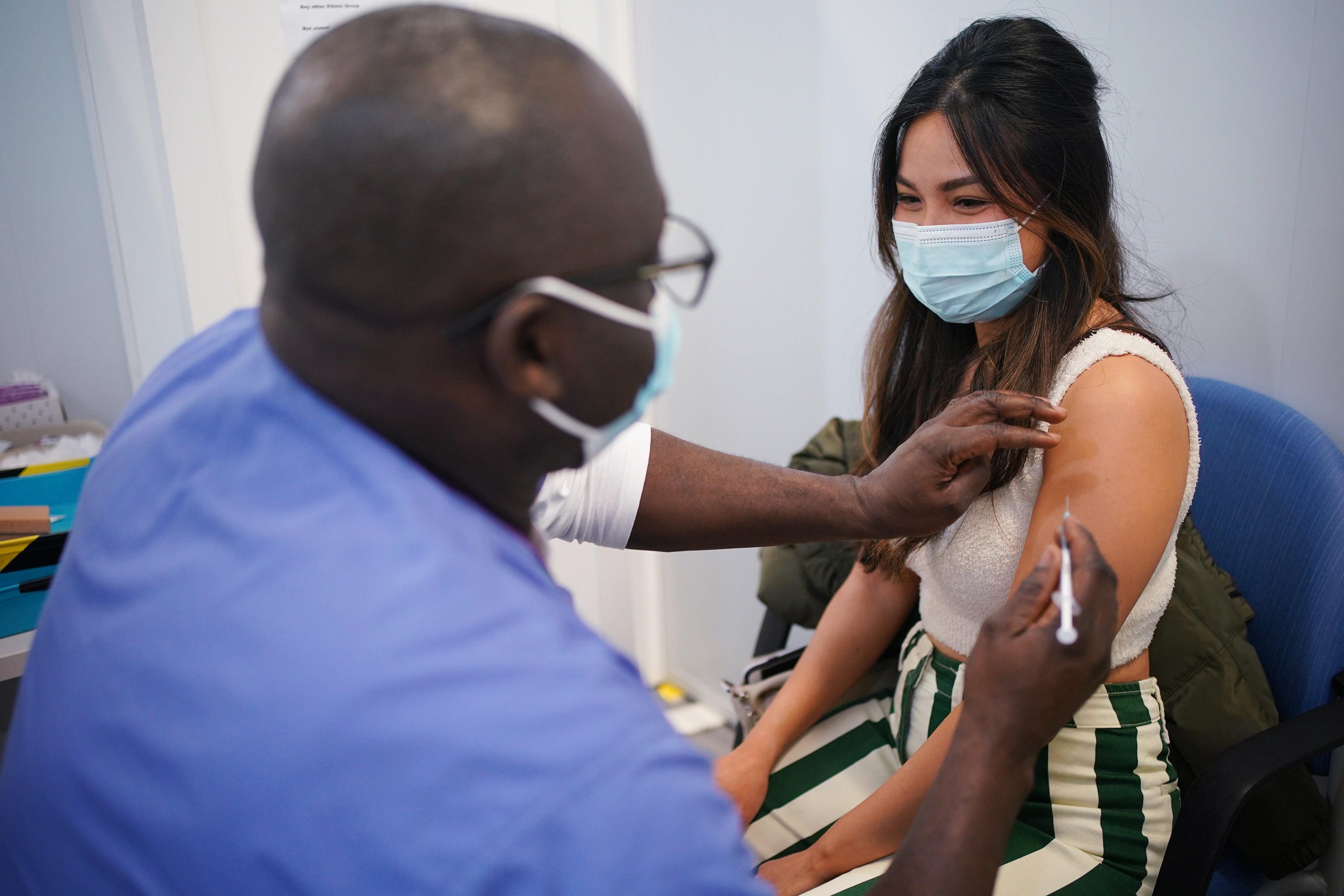GPs welcome cuts to paperwork to focus on Covid booster jabs
The BMA said ending ‘tick-box’ exercises will free up staff but warned the service remains under ‘significant’ pressure.

Your support helps us to tell the story
From reproductive rights to climate change to Big Tech, The Independent is on the ground when the story is developing. Whether it's investigating the financials of Elon Musk's pro-Trump PAC or producing our latest documentary, 'The A Word', which shines a light on the American women fighting for reproductive rights, we know how important it is to parse out the facts from the messaging.
At such a critical moment in US history, we need reporters on the ground. Your donation allows us to keep sending journalists to speak to both sides of the story.
The Independent is trusted by Americans across the entire political spectrum. And unlike many other quality news outlets, we choose not to lock Americans out of our reporting and analysis with paywalls. We believe quality journalism should be available to everyone, paid for by those who can afford it.
Your support makes all the difference.Doctors’ leaders have welcomed moves to ease the workload of GPs enabling them to focus on the Covid booster jab rollout, but warned the service remains under “significant” pressure.
Following the decision to ramp up the vaccination programme, NHS England has told GPs other targets may be suspended and routine health checks for the over-75s and for new patients can be deferred.
The move comes after the Government announced it was extending booster jabs to all adults and cutting the time between the second and third doses from six to three months amid fears about the spread of the new Omicron variant.
Ministers have promised a “national mission” to ensure everyone who is eligible can get a booking by the end of January, but have acknowledged it represents a “huge ask” for the NHS.
Dr Farah Jameel, chair of the BMA’s England GP committee, said reducing the amount of “unnecessary” appointments would create some additional capacity, but that individual practices would have to decide how much they could switch to delivering Covid jabs.
“We have been struggling with significant prevailing workforce pressures – backlog pressures, winter pressures, pandemic pressures,” she told the BBC Radio 4 Today programme.
“Whilst these changes make a difference and start to create some time, I think every single practice will have to look at just how much time it does release.
“What it will do is free up staff time who are busy filling some of these tick-box exercises, so some of our staff can be redeployed to the vaccination effort.”
On Friday, the UK Health Security Agency (HSA) said a further 75 cases of the Omicron variant have been confirmed in England amid signs of a “small amount” of community infection.
The latest cases take the total for England to 104 and for the UK as a whole to 134 – including 29 in Scotland and the first confirmed case in Wales.
The HSA said that in England Omicron cases have now been identified in East Midlands, East of England, London, North East, North West, South East, South West and West Midlands.
Individuals who have tested positive for the variant and their contacts are being asked to self-isolate while the HSA said it was carrying out targeted testing at locations where the positive cases were thought likely to be infectious.
HSA chief executive Dr Jenny Harries said: “We are continuing to monitor the data closely. Teams nationally and locally are working at pace to identify and trace all close contacts of every Omicron case.
“We have started to see cases where there are no links to travel, suggesting that we have a small amount of community transmission.”
The figures came as a risk assessment by the HSA rated the new Omicron variant as “red” for severity of infection and “amber” for transmissibility between humans.
It said the variant, first identified in South Africa, was likely to reduce the protection from both naturally or vaccine-acquired immunity.
However it acknowledged there was so far “insufficient data” to reach firm conclusions and the assessment was presented with “low confidence”.
Dr Harries said: “We are working as fast as possible to gather more evidence about any impact the new variant may have on severity of disease or vaccine effectiveness.
“Until we have this evidence, we must exercise the highest level of caution in drawing conclusions about any significant risks to people’s health.”